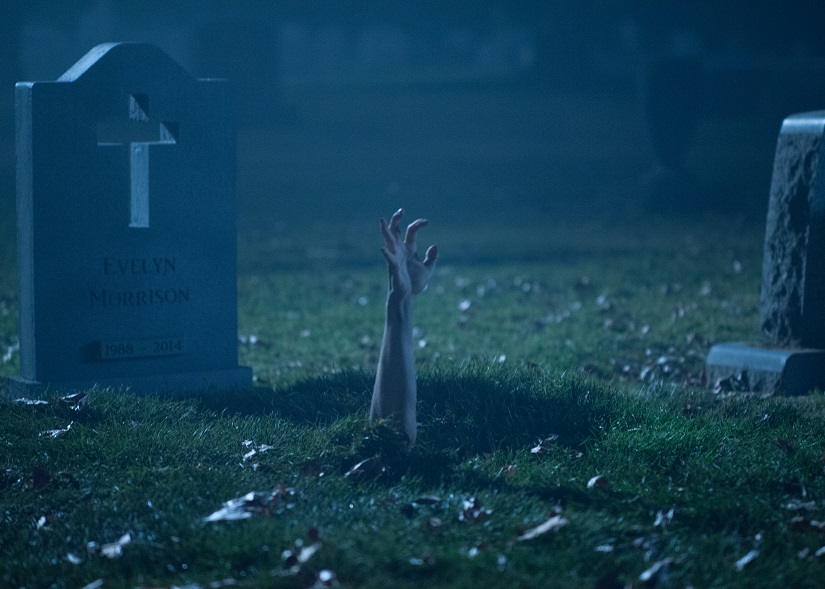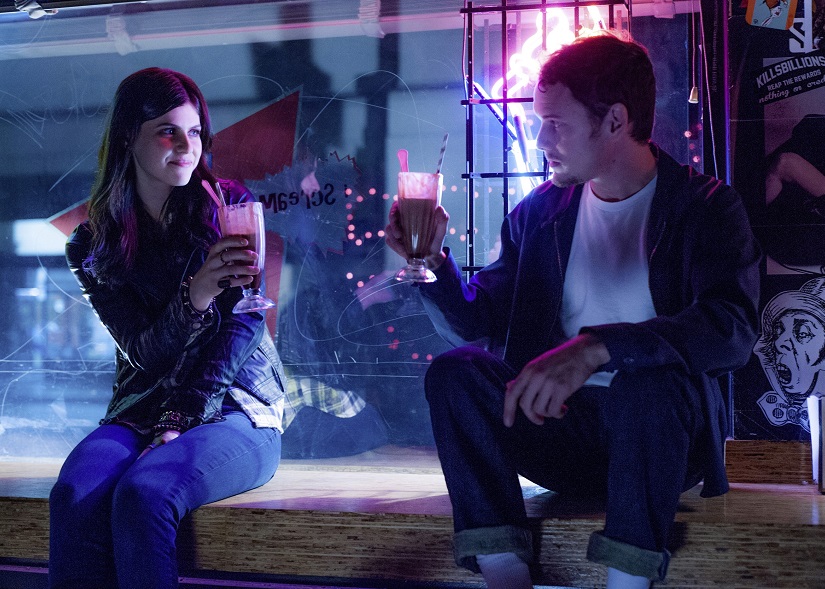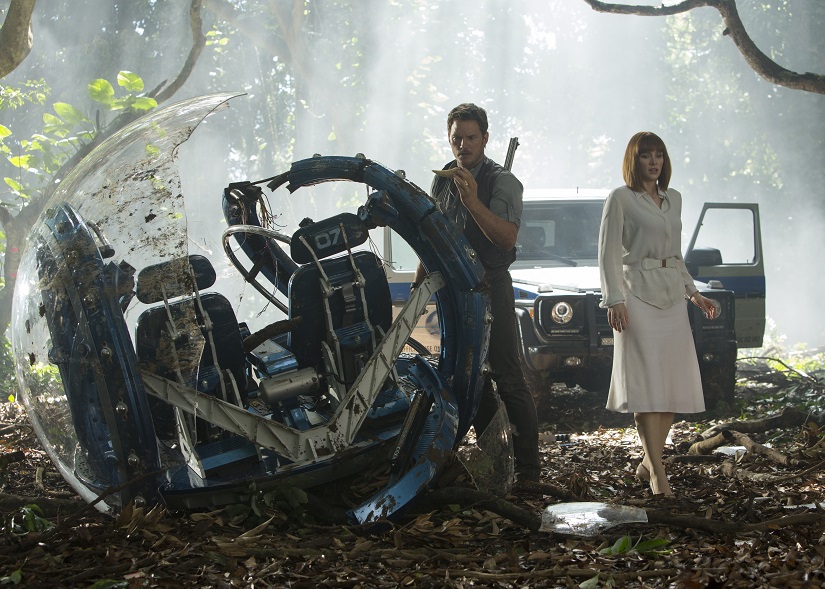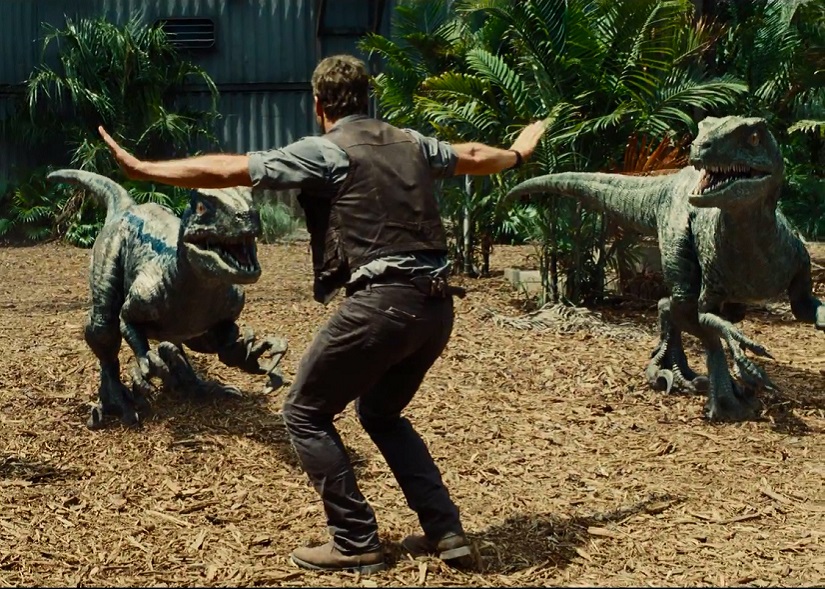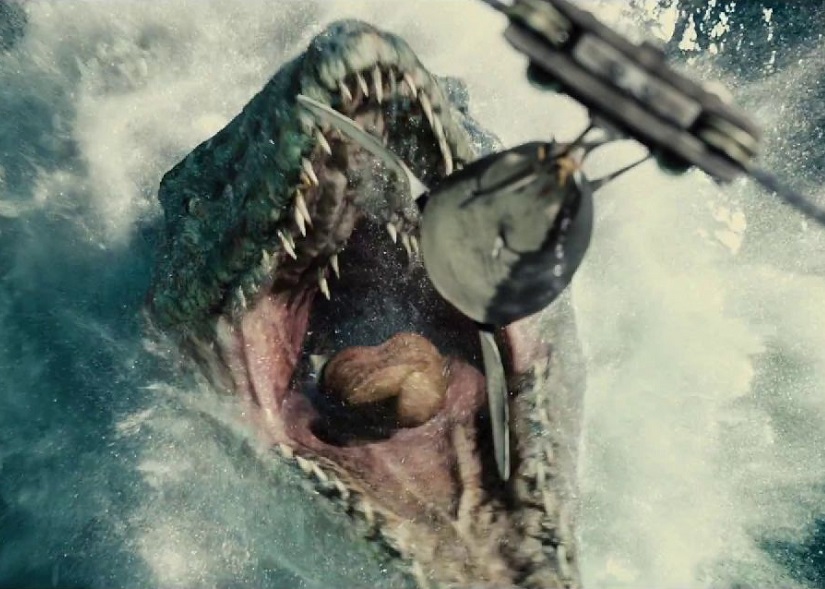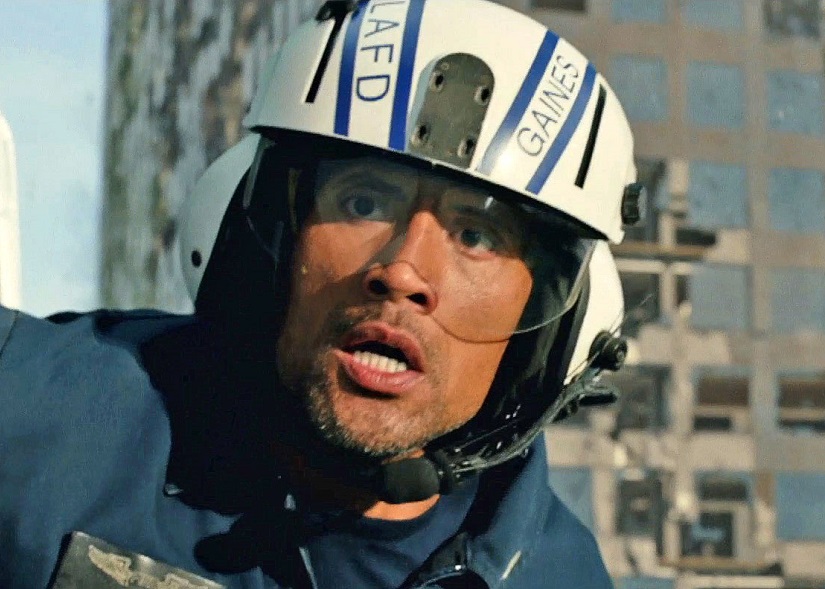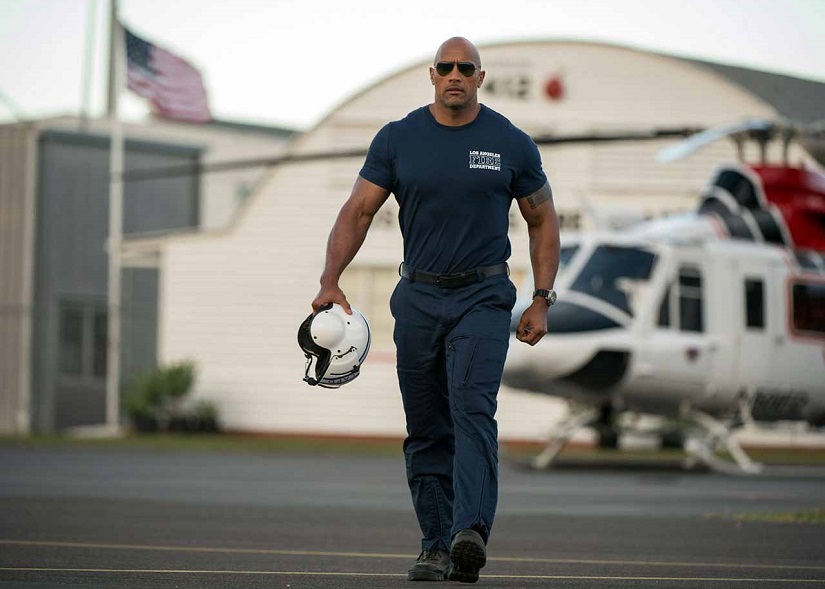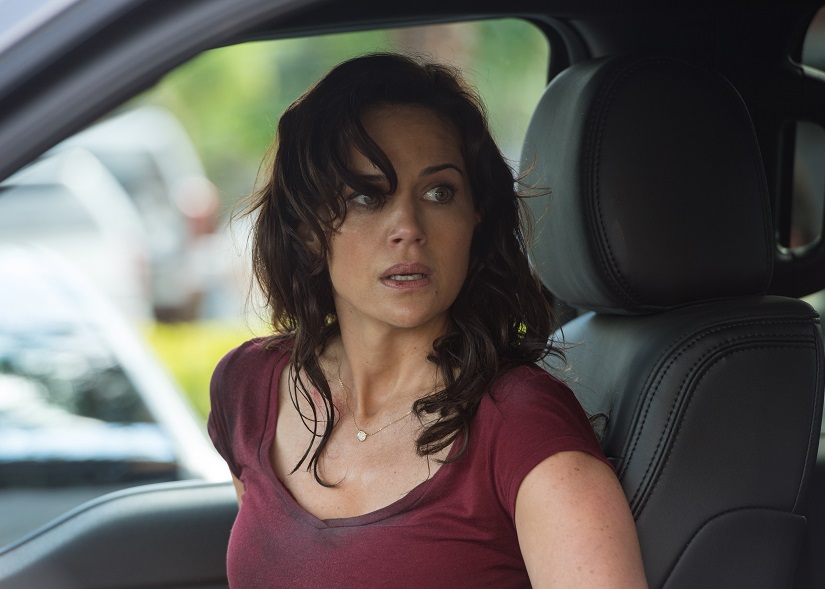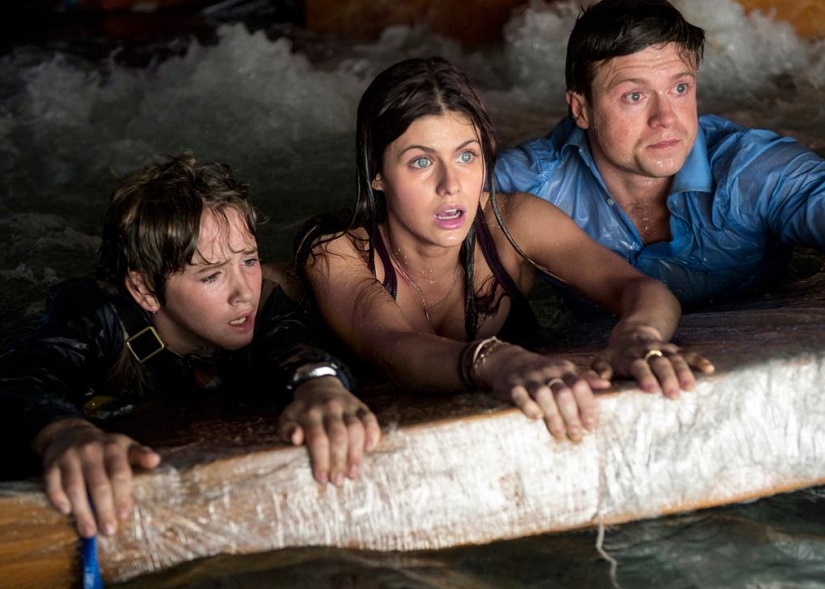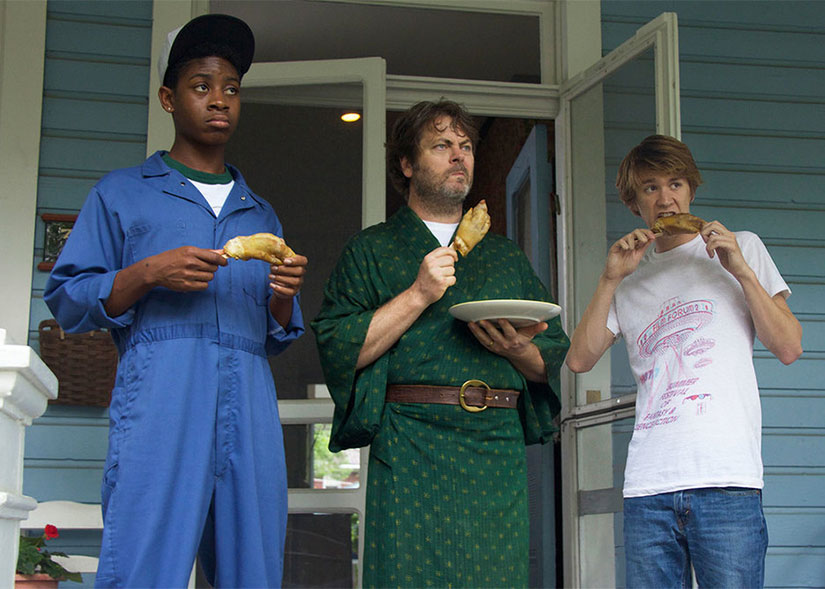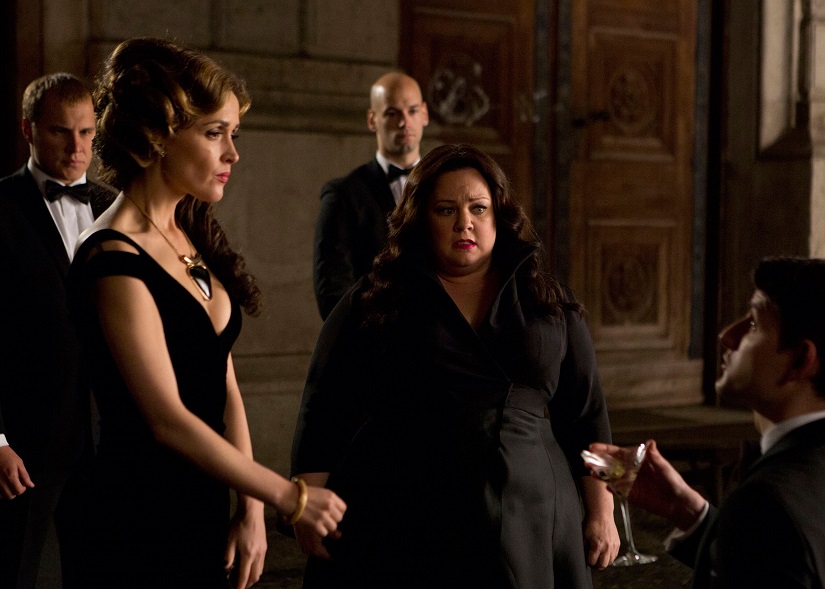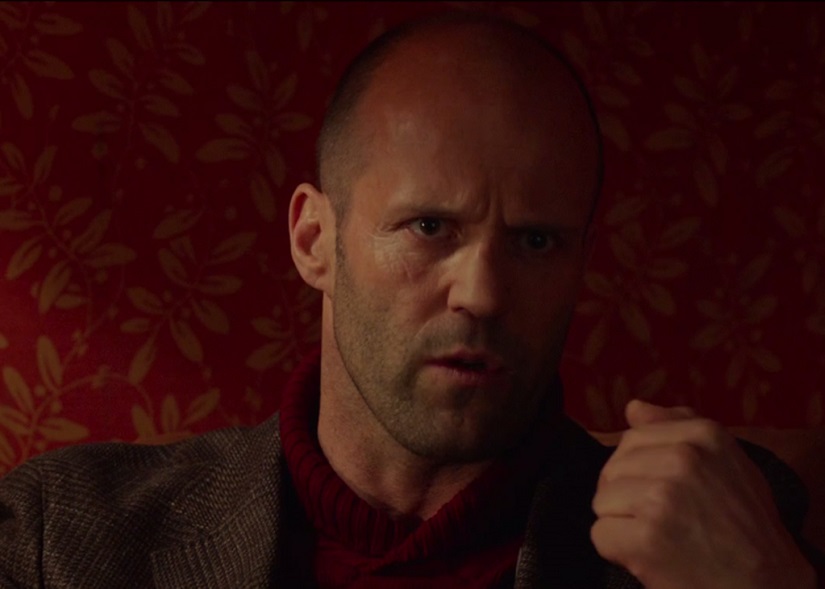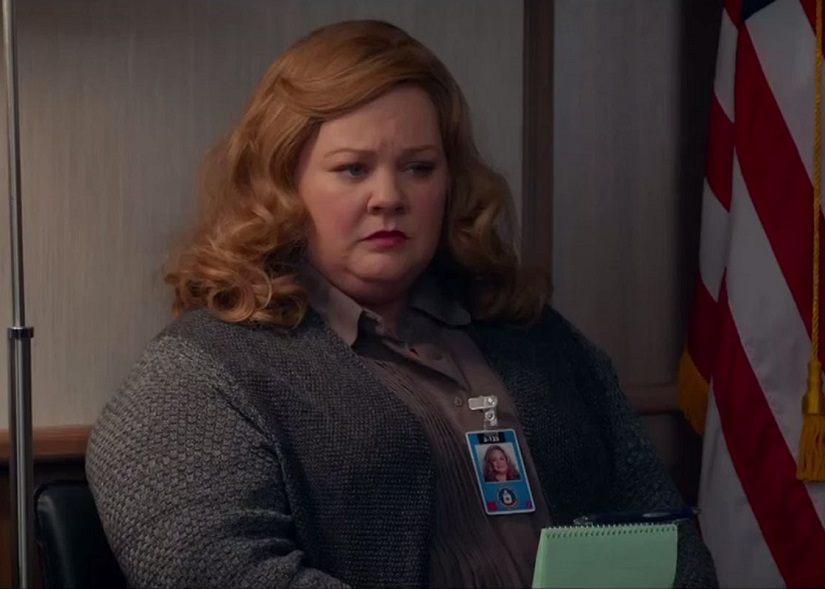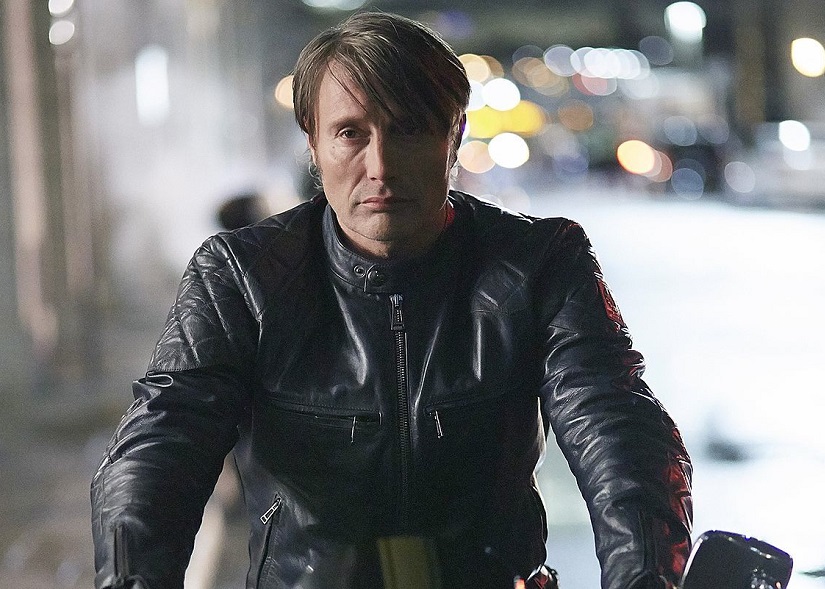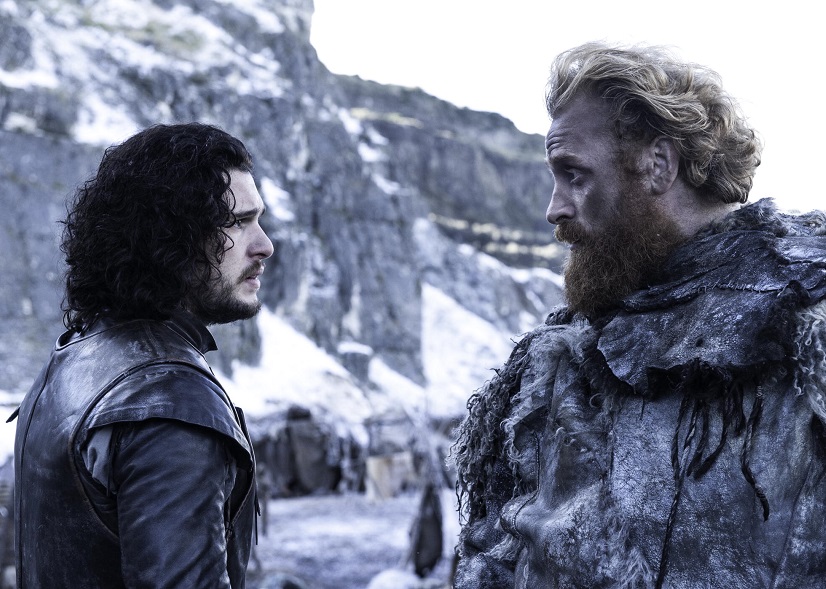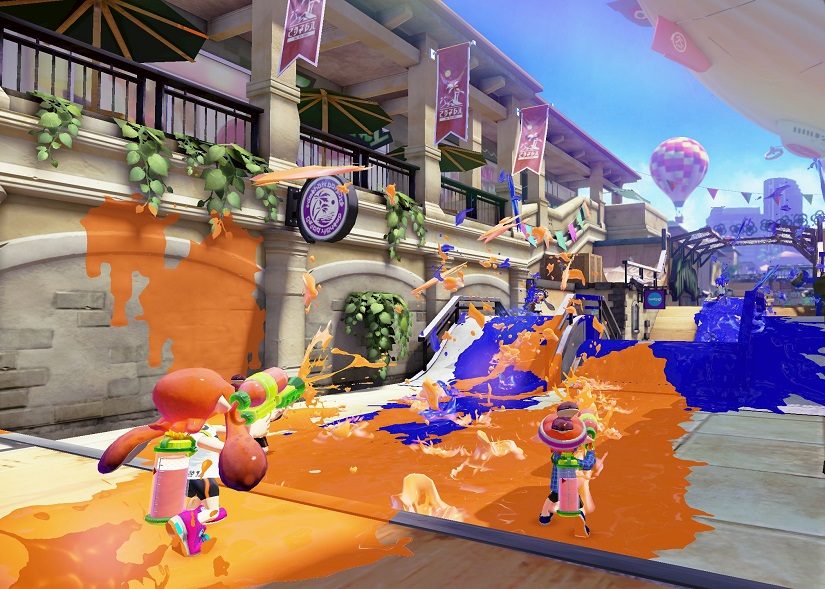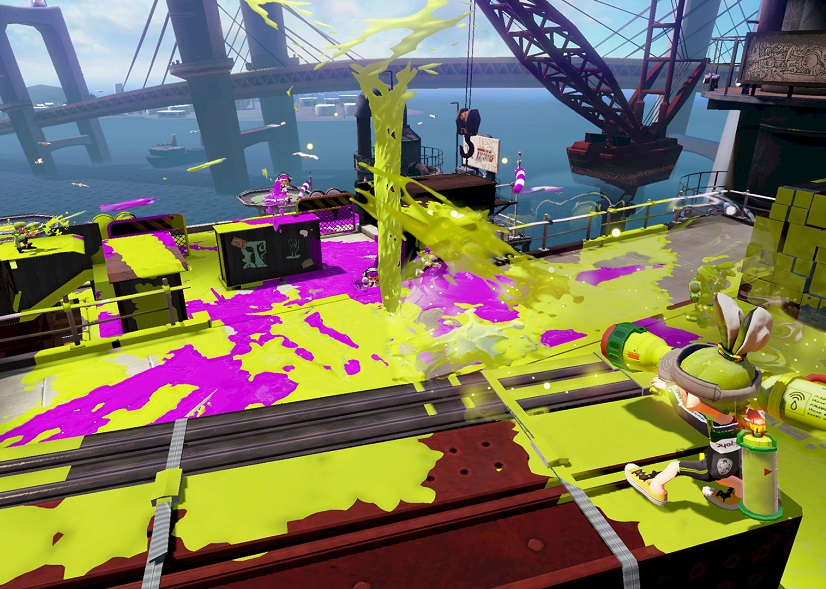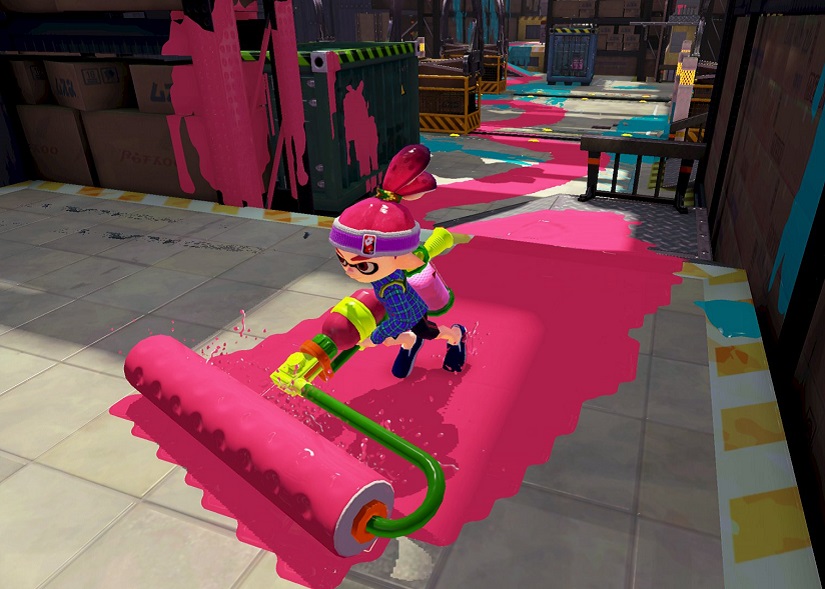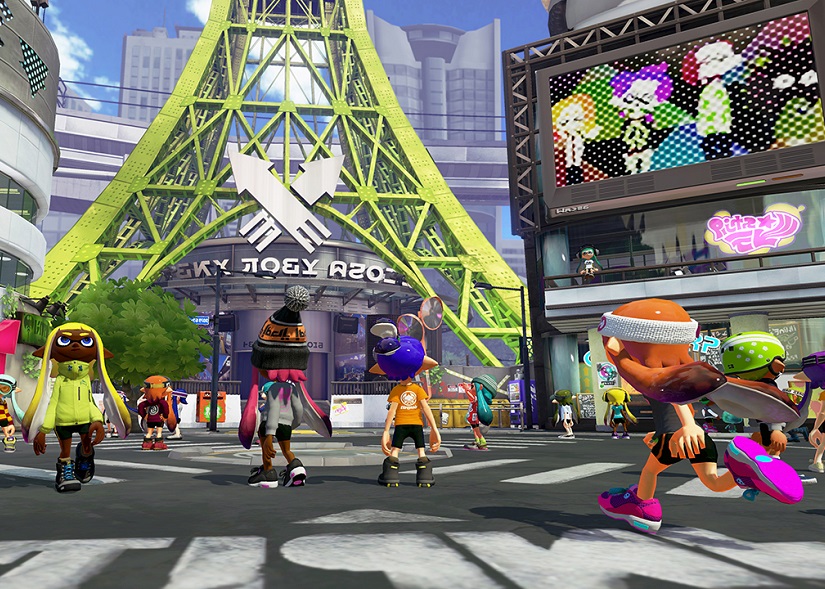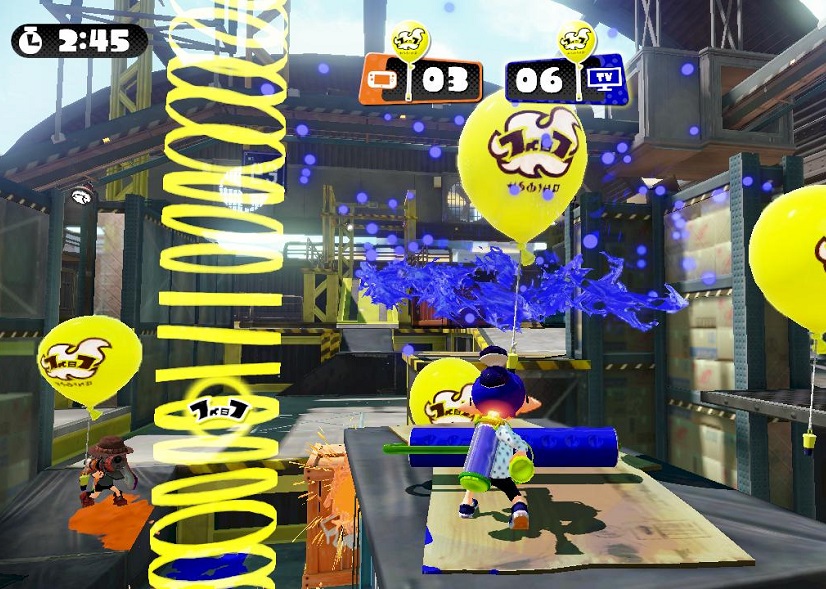[Review] Burying The Ex
Joe Dante is one of those directors you wish would get more work. At a time when any semblance of identity or creativity in blockbuster filmmaking is being increasingly calculated, focus-tested and formula-driven out of existence, Dante at his best brings a spirit of gleeful, unpredictable anarchism, a joy at throwing away the rulebook that is both very much his own and the product of his mentorship at the hands of the great B-movie maestro, Roger Corman.
Burying The Ex sounds like ideal Dante material, concerning a young horror buff, Max, struggling in his relationship with a controlling girlfriend, Evelyn, only for her to be hit by a bus on the day he finally decides to break up with her, then come back from the dead in zombified form just as he moves on and meets a kindred spirit from a nearby ice cream parlour. Unfortunately, despite all the premise's potential for Dante's brand of gunk-splattered cartoon chaos, he struggles to bring any life to an uninspired, pedestrian script that feels more like the extended pilot for a middling network sitcom called So I Dated A Zombie than a comeback cinematic outing for a great genre director.
[youtube id="MYlDjF8-sb4"]
Burying The Ex
Directors: Joe Dante
Rating: R
Release Date: June 19th, 2015
The movie is rated R, specifically for sexual content, partial nudity, some horror violence, and language. All of that may be technically true - the 'nudity' is especially partial - but far from any degree that one might expect to trouble the censors were this a higher budget release, backed by a more influential major studio. There's plenty of blood, but mostly used to cover faces rather than douse the walls, while a brain-eating scene is edited in such a way that any real semblance of gore is restricted to quick flashes. Dante's affection for discharging large quantities of boldly coloured gloop is satisfied by the zombified Evelyn projectile-puking embalming fluid all over the terrified Max, but played strictly for laughs - none too effectively, it should be said, making a jarring tonal shift amid one of many lackadaisical, drawn out dialogue scenes that should be more fun and energetic considering the material being covered - and hardly the sort of thing to turn away from. It's one of the tamest R-rated movies for a long time and the feeling pervades that the rating gives the movie's horror bona fides more credibility than they deserve.
Part of that is surely a result of the low budget, which leads to a significant number of scenes taking place in Max's front room. Dante had great fun contrasting the safety of suburban decorum with the ravages of the supernatural in Gremlins, but Alan Trezza's script denies him the chance to really dig into what zombified havoc Evelyn is capable of unleashing on Max's slow-paced hipster existence beyond one bout of vomiting and a handful of demonstrations of super-strength. In fact, there's a real argument that she does more damage in redecorating his front room prior to her (first) demise than she ever does following her resurrection. What's left is a series of quickly wearisome back-and-forths in which Evelyn re-asserts her desire to covert Max to the undead so they can be together forever, followed by his expressions of disgust at that desire and her steadily decaying flesh.
The unadventurous script limits the strong cast, of which Anton Yelchin, playing the put-upon Max, feels most subdued. Yelchin is a charismatic actor who has made a good impression in minor roles in not-so-good movies, but he plays Max so sleepily and lacking any response beyond mild surprise and concern at what should be a terrifying situation that he's hard to have sympathy for when he himself barely seems concerned by what's happening. True, he's not supposed to be a character of any great assertiveness or courage, but Yelchin tips the balance too far until it drops into virtual indifference. His half-brother, Travis, is supposed to be the more ribald and confident of the two, but is such a tedious slobby womaniser stereotype that, rather than being an invigorating presence who pushes Max to stand up for himself, it's a relief whenever he exits a scene. It also speaks to the movie's disappointing safeness that he boasts of sleeping around not with centrefold models from Playboy, but FHM, a magazine, like the character, stuck in eye-rolling late-90s ideas of laddish masculinity.
Ashley Greene fares better as Evelyn, pushing back against the tame material to unearth a little of the sadness behind her character's anger and control-freakery. The obsessive, domineering ex-girlfriend is another tired cliché, but Greene's history with the Twilight franchise makes for savvy casting as she finds small traces of humanity in her zombified form. Perhaps one of the movie's most debilitating flaws is that it in fact makes the living Evelyn too likeable and sympathetic, justifying her controlling nature with a sad backstory and a genuine, if overbearing, desire to love and be loved. Her eco-conscious do-goodery (working for a firm called 'Live Green Or Blog Hard', one of a number of not-quite-funny-enough Simpsons-esque workplace names) may be pushy and annoying, but it's hard to deny she has a point when calling out Max for not showing any motivation to improve his lot despite constant complaining. She's the most fully rounded character in the movie, far moreso than Alexandra Daddario's dreamgirl sweet Olivia, entirely defined by liking all the same stuff as Max, a dating site approach to a romantic lead where compatibility is calculated exclusively by the number of shared interests.
What is the real stake through Burying The Dead's heart is that Shaun Of The Dead, an even more low-budget zom-com, did everything Dante's movie tries to do to much greater effect eleven years earlier. The movie skirts around the idea of relationship angst among geeky mid-twentysomethings, but Shaun committed more fully to the idea of the difficulty of youngish men finding a direction in life outside their nerdy and nostalgic preoccupations, all the while being significantly scarier, gorier, sweeter and funnier. Nick Frost's Ed, in particular, is a much more sharply observed depiction of what Travis should have been.
There are glimpses of the picture Dante might have made had his budget been bigger, the writing been sharper, and had he himself maybe been twenty years younger, but they are few and far between, in the end only growing the disappointment that what ended up on the screen is so consistently stuck in second gear and tepid in its execution of already underwhelming ideas. Ashley Greene in particular deserves better, while Alexandra Daddario continues her wait for a movie role which puts her natural affability to more lively use than the girlfriend role. A Dick Miller cameo and a handful of amusing sight gags provide the slim pickings for Dante's fans, but as welcome as it is to see him back in any sort of cinematic work, it's a shame the result shows few real signs of life.
[Review] Jurassic World
Many people expected Jurassic World to be a hit, though few would have predicted quite how big a hit it would turn out to be. In retrospect, it's easy to appreciate how complete the movie's formula actually is: dinosaurs will always be a major draw for children, especially when fighting other dinosaurs, while older viewers have the strong nostalgia factor of Steven Spielberg's 1993 adaptation of Michael Crichton's novel, Jurassic Park, to lure them in. Throw in one of Hollywood's fastest rising stars in the shape of Chris Pratt, and suddenly that record-breaking take doesn't seem quite so surprising.
Despite its big reputation, the original Jurassic Park never won me over as completely as those whose nostalgia is among the many reasons World is on its way to global domination. There's no question that Park was an extraordinary cinematic event, one of the few movies of the past thirty years to inspire a genuine sense of awe in its viewers, but whether it coheres as a great film in its entirety, rather than a handful of magnificent scenes and a cast which happened to be a perfect fit for the material and each other, is up for debate. Regardless, the moments when it really delivered are rightly celebrated among the finest moments of Spielberg's glittering career and few can deny its importance as a cultural phenomenon of its time. For all its astounding financial success, Jurassic World seems unlikely to be held in such high regard in twenty years' time.
[youtube id="RFinNxS5KN4"]
Jurassic World
Director: Colin Trevorrow
Rating: PG-13
Release Date: June 12th, 2015
That's not to suggest Jurassic World is a bad movie per se, but one which is best taken with strongly tempered expectations. It delivers all the dinosaur-on-dinosaur action that viewers will be expecting and is certainly the best of the three Jurassic Park sequels, though that's faint praise if ever there were such a thing. It's a movie which feels acutely aware of the likelihood that a strong percentage of its audience will be children and subsequently inhabits that PG-13 middle ground where no matter how great the carnage depicted on-screen, everything remains strangely and distractingly bloodless.
One of the most uncomfortable examples of this is a prolonged, grossly misjudged death of one of the supporting characters, who for a good thirty seconds is thrown through a procession of increasingly nasty torments before finally being put out of their misery, all without a single drop of blood being spilt. There are many reasons to object to this scene in particular, not least its discomforting delight at inflicting extended cruelty on a character who seems to be being punished for nothing more than absent-mindedness, but the movie's refusal to show the consequences of its depicted actions even while pushing so far into unpleasantness makes for an uncomfortable disconnect from reality and a sense of weightlessness which permates the rest of the movie.
Taken strictly on the level of spectacle, the movie hits its marks comfortably. Director Colin Trevorrow emphasizes the wonder and scale of the park, which has been rebuilt and reopened on the same island as the original in one of countless nods. The iconic John Williams score - is there any other kind? - is put to full, thrilling use and for a moment, Jurassic World recalls that feeling of awe which rooted the original so firmly in the collective cultural memory. It's when the movie has to get down to the nitty gritty of telling an actual story, with logic and characters and other such troublesome distractions, that it starts to go off the rails. Chris Pratt may be an immediately charming presence, but doesn't have the idiosyncratic charisma of a Jeff Goldblum, the gravitas of a Richard Attenborough, or the everyman authority of a Sam Neill. He's hamstrung by material which forces him to recite a series of leaden gags in lieu of developing an actual character, while his repeated assertions of manliness come off as juvenile posturing.
Speaking of which, the movie's antiquated representation of gender has been the subject of criticism ever since the first clip from the movie was released. Unfortunately, far from being taken out of context, as Trevorrow suggested, the female roles are arguably even more retrograde than first imagined. This doesn't appear to be down to anything more malicious than the same clichéd writing which also wedges a needless and shorthand-y divorce subplot between the two young brothers acting as audience surrogates in the first act, but even writing as someone who is generally reluctant to apply outside politics to any form of storytelling, World's female characters are punished and diminished in the presence of the male characters, themselves exclusively drawn from stereotypical masculine archetypes. Dallas Howard's Claire isn't much more than a stiff for Chris Pratt's self-identified 'alpha' to wear down, and the one time she asserts herself, it's to tell a nerdy male character to 'be a man and do something'. Meanwhile, Vincent D'Onofrio's Vic is so outwardly villainous and one-note that the only surprise is him not getting a chance to do his own Dr. Evil laugh. Oh, and did I mention that the person subject to the prolonged death described earlier was a working woman? Read into that as much or as little as you will.
Fortunately, the action is strong enough to offset the tedious emptiness of the movie's human characters. The absence of one well-developed character does rob the movie of any tension, with the bloodlessness only adding to the impression they're no more real than the CGI creations swirling around them, but that innate dinosaur appeal is a powerful thing indeed. Despite the movie's snarky in-jokes about audiences becoming increasingly blasé in their demands for bigger and better, there's still a childlike joy in watching raptors on the hunt, pterodactyls in mid-flight, or the lumbering beauty of a diplodocus grazing peacefully in a verdant savannah. The movie's respect for its creatures and concern over humans' treatment and commodification of animals, makes for one of its few poignant thematic successes, even if it all goes a bit wrong when it starts fully anthropomorphising them for the sake of a staggeringly stupid final act: this is a very dumb movie for the most part, even in a series where plot holes are a longstanding tradition, but the climax really takes the cake in throwing all semblance of reality and logical behaviour to the wind.
Jurassic World's faults are those that might be expected from a movie which has emerged from over a decade in development hell. It seems to be trying to tell three stories at once, of which only the spectacle truly delivers. The original sketched its characters just delicately enough to allow its magnetic cast to do the rest. World overburdens its characters with contrived histories delivered through hilariously inane anecdotes which just so happen to offer inspirational messages perfectly suited to each moment of peril ('Remember when we went on that date?'/'Remember when I had that dog?'/'Remember when...' [and I'm not even joking here] '...we saw that ghost?'). It delivers well enough on its core requirements as a summer blockbuster tentpole that few will come out feeling as though they haven't basically seen the dinosaur extravaganza they were promised, but the constant nods back to Jurassic Park only serve as a reminder of how much better rounded that movie was in the small details which gave its action meaning and heft and connection. Like World, Park for the most part worked better in individual scenes than as a complete picture, but it's those details which made Park's scenes so jaw-dropping and are conspicuously absent here. Financial success makes a fourth sequel an inevitability, but when Jurassic Galaxy rolls around in a few years' time, let's hope it remembers to bring back the soul so missing in World's impressive but hollow spectacle.
[Review] San Andreas
Before watching San Andreas, I was curious to know how long it has been since the last genuine, unabashed big-budget disaster movie. Naturally, this meant the first port of call was the filmography of Roland Emmerich, the German director behind Independence Day and The Day After Tomorrow, whose career is virtually name-associated with the genre. As it turns out, his last true disaster movie (not to be confused with disastrous movies, of which he's released a couple since) was 2012 in, weirdly, 2009.
That was one year after the release of Iron Man, the movie which turned Marvel and the superhero movie into the face of the modern blockbuster. Given the mind-boggling destruction which the average comic book movie trades in - see Avengers: Age Of Ultron, or if you haven't by this point, don't bother - it's no surprise that the disaster movie has since fallen by the wayside. San Andreas feels like a throwback in that respect, but also very much conscious of the changing tastes of the time.
[youtube id="hnJPHYAlid8"]
San Andreas
Director: Brad Peyton
Rating: PG-13
Release Date: May 28th, 2015
Dwayne Johnson, aka The Rock, as anyone who ever had a childhood will know him, plays a helicopter rescue pilot who sets out to reunite his family when the biggest earthquake in human history hits California as a result of the San Andreas fault starting to shift. There's approximately nothing more to the plot than that. That's far from a criticism, however, as simplicity is a much undervalued quality at a time when every new release seems to burden itself with increasingly convoluted world-building and sequel-seeding. San Andreas tells a straightforward story, going from A to B without any deviations along the way, then ends with an actual conclusion. It's one of the genre's strengths and, at the present time, a welcome relief from the norm.
If you've watched the trailer - see above - you know what to expect. Buildings collapse, people run and scream, the hero overcomes a personal trauma to save the day, and a fulsome female lead runs around in a wet vest. All boxes ticked. What makes the movie more distinct from its forebears is the presence of The Rock, who is quite unlike any disaster movie protagonist in living memory. The genre typically trades in everyman heroes, rising above their own shortcomings to survive, often with the assistance of a team, an onslaught by the overwhelming power of mother nature. One look at The Rock tells you that's not going to be the case here. Trying to pass off a 6'3 former wrestler as an everyman isn't going to work, and it's interesting how his physique alters the fundamental dynamic of the relationship between the genre and its protagonist.
Unlike disaster movies past, San Andreas' protagonist is never the one in danger. At worst, there are instances where he looks a mite concerned, but he exists almost entirely beyond the reach of the disaster itself. It's his daughter, played by Alexandra Daddario (required to do nothing but be sweet and look attractive, tasks she rises to meet triumphantly), who is the one caught in the chaos and finding herself, along with a bland English boyfriend-in-waiting and his sarcastic younger brother, perpetually trapped under collapsing buildings and rooms rapidly filling with water. His ex-wife, played by Carla Gugino, momentarily finds herself in similar trouble, but is soon rescued to join Mr. The Rock for some relationship therapy as the entire West Coast of the United States crumbles around them.
The Rock's essential invulnerability gives San Andreas something of the superhero movie vibe. Surprisingly, this works quite effectively. One of the genre's biggest obstacles is that it needs to go bigger each time in order to retain the level of awe-inspiring visual spectacle on which it overwhelmingly relies for its entertainment value, yet as the likes of Avengers proves, there's a point at which wanton destruction becomes so ludicrous that it's hard to care anymore. With Mr. The Rock (his 'character' has a name, but it's not important since he's basically The Rock in a differently coloured tight shirt) effectively watching the catastrophe unfold in the same way as the audience, he becomes one of the genre's more effective surrogate characters in recent memory. This also makes his family drama with Gugino's Ex-Mrs. The Rock slightly more relatable, helped by the two actors playing it with a unexpected amount of sincerity.
What also works is that the movie doesn't shy away from the human cost of such a massive disaster. There are a handful of shots whose sole function seems to be showing people being wantonly taken out by falling debris and collapsing structures, which is perhaps a little tasteless (although if that's your main concern, you're watching the wrong genre) but also gives the destruction a palpable sense of weight and loss. It's not enough to redeem the tiresomely uncanny valley-ish CGI depictions of cities being swallowed, enflamed and/or flooded, but that commitment to showing the arbitrary cruelty of its disaster demonstrates a rare and admirable strength of conviction.
Existing entirely outside The Rock's immediate vicinity is Paul Giamatti's seismologist, whose character's name also feels unimportant since he's basically the stock Voice Of Authority Played By A Respected Character Actor. It's nevertheless odd how tangential to the story he is, even by the genre's standards, not sharing a single scene or communication with the three leads. He gets to run away from one disaster - saving a little girl and watching his ethnic minority colleague be sacrificed in a scene which leaves no cliché unturned - shortly and with no small sense of irony after predicting the inevitability of such an event, after which he's stuck delivering grave warnings into a television camera. While such roles are part and parcel of the genre, the time spent in his character's company feels very much like time-wasting (other than, perhaps, to dispel the myth that the best course of action in an earthquake should be to hide in a doorway, when under a table is in fact the better course of action), an impressive feat for a movie coming in under 2hrs long. I should probably post an image of Mr. Giamatti at this point, but if we're honest, I think if we'd all rather see Alexandra Daddario, so let's go with her.
While Giamatti's scenes are strictly disposable, conveying information which could just as easily by offered through radio broadcasts or other background noise, it's to San Andreas' credit that it otherwise cuts to the chase when it comes to reaching the big events that audiences will be paying to see. There's approximately no time for such inconveniences as logic, but again, if that's your concern then the genre is most definitely not right for you. Stuff happens entirely to fulfil audience expectations rather than real world, or even internal logic, and that's not a bad way to go about approaching this kind of material. The Rock has a singular goal, to reunite his family, and despite being a rescue pilot who has commandeered a helicopter at a time when one would assume all airborne vehicles to be invaluable rescue resources, has absolutely no interest in helping anyone other than two specific women, who rather helpfully, are the only two people he really comes across anyway. In one amusing scene, his ex-wife (who has, inexplicably, been lunching with Kylie Minogue) happens to be the very first person he sees upon flying into Los Angeles.
It's lightweight, disposable fare, easy to mindlessly absorb with friends and laugh about afterwards. As a genre turn, it's a perfectly solid one, occasionally edging towards poignance with its willingness to engage ideas of loss on both personal and wider scales. Despite the big budget, it's nevertheless difficult not to see its self-aware campiness as having been undercut to a large extent by the likes of Sharknado, itself even more unrestrained in its audience-pleasing ridiculousness. The Rock proves he can do solid work without the safety net of irony, nicely underplaying a protagonist whom audiences are expected to take at least somewhat seriously despite the events surrounding him. Gugino and Daddario are entirely serviceable in their limited parts and Ioan Gruffudd is suitably slimy as Ex-Mrs. The Rock's new husband, whose evilness is defined by his riches in a movie produced, directed, written by and starring presumably very rich people. Make of that what you will. Regardless, San Andreas is decent enough multiplex filler, a throwback with just enough tweaks to keep it interesting, if never exactly engaging. It's not exactly good, per se, but far from a disaster.
[Review] Me and Earl and the Dying Girl
This review is being re-posted to coincide with Me and Earl and the Dying Girl's theatrical release.
Going into Me and Earl and the Dying Girl, I expected something akin to The Inevitable Defeat of Mister and Pete in the sense that it would be a grounded, coming-of-age film about friends trying their hardest to get through adversity. In a way, I was both completely off the mark and somewhat on the money, but in the best ways possible. Simply put, Me and Earl and the Dying Girl ultimately proved to be the breakout film of Sundance 2015.
Me and Earl and the Dying Girl
Director: Alfonso Gomez-Rejon
Rating: N/A
Release Date: January 25, 2014 (Sundance)
Greg (Thomas Mann) has made it to his Senior year without pledging allegiance to any one high school faction, yet has built up enough rapport with each to not also cause friction with them. Despite this, he has no friends, save for Earl (RJ Cyler), his partner-in-crime since they were little. Together, they spend their lunches with their history teacher (Jon Bernthal) and watch classic films, even going so far as to re-create them. Greg's status quo is thrown off when his mother forces him to hang out with Rachel (Olivia Cooke), a fellow Senior recently diagnosed with leukemia. As their friendship progresses, the two begin to grow closer as Rachel's illness unfortunately begins to progressively get worse.
Greg soon begins to break out of his shell and actually finds himself as a whole, individual being rather than a transparent everyman meant to appeal to everybody. He also begins to form actual friendships and relationships (throughout the film, he refers to Earl not as his friend, but as his "co-worker" for fear of attachment and loss). The chemistry between Mann and Cooke is front and center for this progression. Mann's been building his star since his role in Project X, and Me and Earl and the Dying Girl is the perfect type of film to show off his penchant for both comedy and drama. Cooke's take as a girl inevitably facing death but still trying to not have the disease define her is more layered than the typical "damsel in distress," but is sometimes relegated to a supporting character to Mann's spotlit performance. However, Mann's performance wouldn't be nearly as strong were it not for his interaction with Cooke.
[youtube id="eCGyXDU0HOM"]
Throughout the film, snippets of the sweded films Greg and Earl shot are shown, similar to Be Kind, Rewind, homaging such varied films as Apocalypse Now (A Box O' Lips, Wow), Breathless (Breathe Less), A Clockwork Orange (A Sockwork Orange), and more, which should make for a good special feature when the film's released on home media. Beyond the easter egg nature of the films, they prove to establish Greg and Earl's characters, and represent the biggest subplot of the film that culminates in Greg's final film dedicated to Rachel. In a way, the completion of that film completes Greg's year-long journey to becoming a tangible person with tangible attachments and feelings.
Me and Earl and the Dying Girl balances comedy and drama perfectly, with the high and low emotional hits coming at the proper moments. By the end of my screening, there was a hushed silence as everybody processed everything they saw, which ran counter to the beginning of the screening with everybody laughing loudly. It's hard to make comedies and make people laugh, and it's hard to make dramas and make people think - it's doubly as hard to accomplish both effectively within the same film, but Me and Earl and the Dying Girl is more than able to carry the load. Better yet, while the film teases and hints at a romantic slant between Greg and Rachel, it smartly avoids going down that predictable path, proving that a dramatic film starring opposing sexes can be successful and entertaining without the necessity of romanticism.
For fans of independent coming-of-age films, Me and Earl and the Dying Girl will sit perfectly alongside your collection. Mann delivers a performance that should elevate his already rising career, Cooke will garner praise, and Cyler will hopefully find more open doors in which to showcase his talents beyond a sidekick role. When the hype begins to build for Me and Earl and the Dying Girl (and it will), know that, for once, it's actually truly justified.
[Review] Spy
After achieving stardom with her standout performance in Bridesmaids, Melissa McCarthy has become a divisive figure, at once a reliable box-office draw while being frequently accused of only being able to play one type of character and one style of comedy. Spy is her third collaboration with director Paul Feig, for whom she will also be headlining the female version of Ghostbusters in 2016. Her work with Feig has generally coincided with her best reviews, with the pair sharing a fondness for subversive, proto-feminist genre spoofs.
Those who have found McCarthy's schtick offputting in the past won't find much to win them round in Spy, an uneven but occasionally amusing bounce through the familiar stable of spy movie clichés. McCarthy's character, Susan Cooper, certainly fits comfortably into the actress' pantheon, exhibiting the expected reliance on pratfalls and foul-mouthed tirades that both fans and detractors have come to expect. What elevates Cooper above the likes of Tammy Banks, of the dreadful eponymous 2014 vehicle which deservedly earnt McCarthy many of her worst notices, is a willingness to allow McCarthy to explore a more outwardly vulnerable, yet secretly competent, side to her familiar persona.
[youtube id="mAqxH0IAPQI"]
Spy
Director: Paul Feig
Rating: R
Release Date: June 5th, 2015
As would appear to be the case with the upcoming Ghostbusters, and was to an extent also true of the previous Feig-McCarthy team-up, The Heat, Spy's most noteworthy trick of genre subversion is casting women in roles typically occupied by men. This idea drives the narrative more than might be expected. Cooper starts out as a highly skilled if unconfident CIA analyst, whose job is to support superspy Bradley Fine (Jude Law) via earpiece with all the information he needs to know to complete his missions, while she watches from the safety of her desk via camera and satellite feeds. When Fine and all the CIA's other agents are compromised, Cooper, the only agent unknown to the enemy, is sent out into the field by her boss (Allison Janney) to retrieve a nuclear weapon before Rayna Boyanov, daughter to a deceased supervillain, can sell it on the black market.
The idea of women taking over a traditionally male game is a rich one, but Spy doesn't offer as much of an original take on the genre as hoped. The movie ventures little towards exploring what unique approaches and challenges a woman, especially a 'plus-sized' woman, might face in the field - the only exception being Cooper having to fend off the advances of Peter Serafinowicz's lecherous Italian agent, which is never as funny as the movie seems to think it is and Peter Serafinowicz seems mildly embarrassed to involved. The female friendship angle is fun and affectionate, but has limited impact on the main plot beyond bringing hero and villain together. Instead, the same spy tropes which have provided easy fodder for spoofs since the James Bond phenomenon came into being in the mid-sixties are dusted off for another airing, even if most of them have long since been left behind in the genre's modern iterations and were already more effectively and lovingly sent up in the first Austin Powers movie. Cooper's competence is very welcome, encouraging viewers to laugh with rather than at, but has been an integral part of creating a likeable goofball spy ever since, to a less obvious extent, Get Smart.
The presence of women in the lead roles does give the movie a novelty value on which it cruises for a while, albeit one which is more the result of the spy genre's near total absence of diversity in its leads than anything much this movie in particular has to say beyond noticing it. Like Kingsman: The Secret Service, the movie promises an anarchic, progressive spin on a typically very conservative enterprise, this time focusing on gender rather than class, but lacks the strength of its convictions to allow its non-traditional protagonist to display anything more unique to them than the standard heroic traits. In fact, it's Jason Statham's Rick Ford who offers the funniest, most determinedly radical spin on the action hero archetype. The character exaggerates Statham's persona by a factor of ten, resulting in a deranged, hyper-masculine doofus with total confidence in his own ridiculous abilities and contempt for anyone, especially women, barging in on his territory. Statham's performances have always carried an undercurrent of self-parody, so it's no surprise to see him shine when given his first chance to play unabashedly comedic material.
That's not to suggest the women fare at all badly: McCarthy is perfectly likeable as Cooper, whose lack of self-belief and frustration at being stuck behind a desk make it all the funnier and more engaging when she's finally allowed to break free of her shackles and start tearing things up. Where a previous McCarthy character threatening to chop a henchman's dick off and stick it to his head (thus making him, to quote, a 'limp-dick unicorn') would've relied on nothing but abrasiveness to get the laugh, here there's a palpable sense of relief as Cooper finally finds the freedom to fully express herself without reservation. Rose Byrne's clipped, arrogant Rayna makes a terrific foil, and her double act with McCarthy allows for some of the movie's most memorable, often seemingly improvised, exchanges. Miranda Hart, likely less familiar to US audiences than UK ones, also does solid work as Cooper's gawky co-worker and best friend, Nancy.
Feig directs with a sure enough hand and shows a reasonable aptitude for action, especially in a one-on-one knife fight in the final act, but there's never any sense of him stretching himself or going the extra distance to give the movie any sort of visual identity of its own. Perhaps symptomatically of the material, his work is functional and fit for purpose, but utterly unremarkable in all respects bar giving McCarthy the freedom to improvise some sparky one-liners into an otherwise drab script, and on the negative side, not immediately vetoing Jude Law's dismal attempt at an American accent, presumably put in place upon realising that three of the five main CIA characters were being played by Brits.
Spy doesn't break as much new ground as it thinks it does when it comes to spy spoofs, and the lack of substance behind its gender-swapping conceit doesn't bode especially well for Feig's Ghostbusters reboot. It is, however, sufficiently lightweight and amiable to be a serviceable diversion at a time when the quality of big screen comedy has taken a slide when compared to that on television. The nuances added to McCarthy's character allow the actress to bring some depth and pathos to her confrontational persona, even if it's Jason Statham's balls-out lunacy which ends up stealing the show as one of the few genuinely surprising and chaotic elements in an otherwise entirely forgettable affair.
[This Week In TV] Hannibal; Sense8; Community
With the TV season drawing to a close, This Week In TV is following it into a summer break. Reviewed in this final edition, Hannibal opens its third season with a gialli-inspired detour through Florentine high society, Sense8 proves that moving to Netflix has done nothing to dilute the Wachowskis' eclectic vision or ambition, and Community's first season on Yahoo comes to a close with an episode which could bow out the series for good.
[This Week In TV] Game Of Thrones; Outlander
With the TV season drawing to a close, This Week In TV is following it into a summer break. Reviewed in this penultimate edition, Game Of Thrones sees Jon Snow discover the true scale of the White Walker danger to Westeros and the Night's Watch, while Claire manages to rescue her beloved Jamie from a sadistic torturer in Outlander, but even her gifts as a healer struggle to deal with the psychological trauma he has endured.
[Review] Splatoon
The common refrain of Nintendo only making games for children may irritate fans no end, but as a statement, it is hard to argue with its accuracy. The suggestion, of course, is that no-one above a certain age would want to play their games, the patently ludicrous delusion of those still clinging to the juvenile approximation of violence with adulthood. Nintendo's games are delightful no matter how old you are, and the reason is because few other companies in the business of creating entertainment are as effortlessly capable of producing experiences which instantly recall the intense, anarchic joys of childhood.
More specifically, Nintendo remembers that such pleasures never had anything to do with the saccharine ideal often portrayed by the media through bland snapshots of toddlers laughing with their parents or playing calmy in an immaculately organised nursery. The joys of childhood were in the misbehaving, the chaos and wanton disobedience of making a mess and breaking rules you didn't even know existed. This rule-breaking has been key to Nintendo's design philosophy ever since players were encouraged to discover a warp zone in the original Mario Bros by running along the level roof. The company may have become increasingly conservative in recent years, pumping out annual Mario and Zelda titles to bolster its struggling hardware, but that core design doctrine, that mischief is always more fun than obedience, has remained, even if not quite as pronounced as it used to be.
That's where Splatoon comes in.
[youtube id="XHlgKMUePck"]
Splatoon
Developer: Nintendo
Console: Wii U
Release Date: May 29th, 2015
Shooters and territorial control games are often cited as two of the most 'hardcore' (cough) genres in gaming, demanding pinpoint precision and intricate mastery of an array of complex systems and controls. With Splatoon, Nintendo takes both genres and inverts them via a simple but inspired twist, whereby the goal is not to conquer the enemy but the arena, performed with a compact number of immediately accessible options with infinite variation. In Titanfall, EA attempted to make shooting games accessible to beginners by offering low-skilled AI opponents as cannon fodder to artificially inflate scores. Such a clunky and patronising solution ignored the real sources of the problem: unneccessarily complex controls, confusing gameplay mechanics, and intimidating levels of aggression, to name a few.
Nintendo solves it by turning the genres' most basic tenents on their heads. In Splatoon, the wisest tactical move is often to avoid the most heavily populated areas in favour of seeking out and reclaiming overlooked map real estate. As long as a player is able to navigate and hold the button to fire the ink whose coverage claims territory for their team and increases their personal score, they are able to make a positive contribution to the effort even if they don't see an opponent the entire match (as unlikely as that admittedly is). With a tap of the gamepad's touchscreen, you can at any point choose to jump to another location on the map provided an ally is nearby, providing an easy way out of sticky situations. Gunning down enemies with the game's impressively varied and well-balanced arsenal is not without benefits, though the most important is tactical, forcing a member of the four-strong opposing team out of action for a few seconds and giving your team a momentary but essential advantage during which game-winning pushes into enemy territory can be made.
Achieving significant ground coverage also aids navigation, with your player able to transform into a squid and swim at high speed through ink of his or her own team's colour, even up and over certain walls. Doing so robs you of all offensive capability, but adds a stealth element - using a well-placed ink trail to sneak up behind an enemy and splat them is a thrill discovered early and which never becomes any less gratifying - and a further tactical element to the gameplay, whereby choosing the moment to risk a charge down a precarious ink trail through enemy lines, using speed rather than power to survive, can lead to a potentially enormous advantage, especially with teammates able to immediately jump to your side should you make it.
For all that killing, or splatting, is de-emphasized, your choice of weapon can make a huge difference to your role in the game. Rapid-fire weapons offer little range or accuracy, but balance ground coverage with reasonable offensive power when pushing towards choke points. Rollers (literally giant paint rollers) can lay down a wide, continuous path of ink, essential for quick navigation and aggressive land-grabbing, but are immensely vulnerable to attack from above or at a distance. Chargers, the game's sniper rifles, are specialised high-power weapons with the greatest focus on taking out opponents, but can put together huge scores with thoughtful use. The many variations on these weapons offers a smorgasbord of in-between options for those whose skillset doesn't comfortably fit into one specific category. Overly efficient Aerospray aside, they all offset each other nicely.
In addition to your primary weapon are subs and specials. Subs are the equivalent of Call Of Duty's equipment, offering both explosive and tactical options. Specials are the game's version of killstreaks, unlocked once you have covered or reclaimed a certain amount of territory. These create some of the game's few balancing issues. While each has its purpose and can be an invaluable asset in the right hands, some subs and specials are noticeably more formidable than others: the Kraken, for instance, transforms the player into an invincible sea monster who can cut an ink trail through enemy territory and destroy all in its path. The Killer Wail sonic blast, with its cover-permeating range and wide radius, becomes insanely powerful in narrower maps.
None is game-breaking by any stretch, but Nintendo's solution, locking weapon sets to prevent players chopping and changing to the most devastating combinations, only serves to undermine the solid balance of the primary weapons by making certain sets inviable should the supporting options not be strong enough to compete. That lack of customisation is symbolic of what holds Splatoon back from making the most of the phenomenal gameplay experience at its core. Nintendo's refusal to give players the full range of options that should be a genre standard feels very much like unneccesary caution from a company with a young audience venturing on its own for the first time into a genre traditionally reserved for more advanced players. Having to quit out of online lobbies to adjust your load-out is a ridiculous frustration, especially for such a tactical game, when most online shooters allow you to not only change in-between matches, but often during them as well.
The number of clothing options available from the Inkopolis hub in which to kit out your avatars is also undermined by the associated perks being entirely randomised bar one. This is, again, presumably to prevent players stacking themselves with a small number of powerful options, but a more balanced set would prevent that more naturally. It instead encourages players to choose aesthetic options they may not like in order to take advantage of the boosts they provide. It ceases to be about players expressing themselves and more a slightly grating push to engage in a system of cynical capitalism encouraging results and function over creativity and self-representation. Achieving a high enough level allows you to re-roll your perks, but it's a costly option that continues to put players at the mercy of a random draw.
Online multiplayer is the game's overwhelming focus and runs smoothly despite suffering the occasional connection failure which also blighted Mario Kart in its post-launch months. Fair warning, there have also been reports of a small number of players struggling to connect at all. Offline, the single player mode is short and sweet, barely five hours in length and, outside the endearingly barmy boss fights, feels more like an extended training mode than campaign in and of itself. Nevertheless, it offers impressive variety in visuals and design, combining the look and obstacle course structure of Super Mario Galaxy 2 with the spraying mechanic from Super Mario Sunshine. There's little incentive to replay levels once they've been completed, but collecting the secret scrolls hidden in each reveals an enjoyably silly and surprisingly detailed lore underpinning the game's squids vs octopodes conceit.
It's a shame there isn't an arena mode to battle AI opponents in the multiplayer maps, and the local multiplayer option, while frantic enough on the smaller maps, is so stripped down (involving popping balloons rather than territory coverage, for whatever reason) that its appeal is likely to be decidedly short-term. Restricting player numbers to two is another annoyance, especially when trawling the bigger maps becomes a drag which could have been at least partially alleviated by allowing four players to enter the fray in 2v2 competition. The local multiplayer control options are also incomprehensively narrow and counter-intuitive: the player using the gamepad can only play on the tiny gamepad screen, giving the player using a Pro or Classic controller the entire TV to themselves. The lack of a splitscreen option reeks of Nintendo trying to force usage of the gamepad's features in a way that also permeates the rest of the game. Outside local multiplayer, the gamepad is the only available control option, despite none of touchscreen features requiring functions that the Wii U's Call Of Duty titles haven't already handled quite ably for non gamepad-users by allowing players to toggle transparent on-screen maps. The inability to use the Wii remote/nunchuck combo is especially jarring given what a natural fit pointer aiming would seem to be for Splatoon's rapid-fire gameplay.
If the absence of control choices and customisation is an annoying but hardly overwhelming issue, the dearth of options even in the game's online multiplayer is far more difficult to overlook. While the limited single player and local multiplayer are forgiveable and the novelty of the bold gameplay is enough to keep things fresh (to use the game's own 90s-inflected lingo) for hour after hour of play, launching with only five maps and a single mode - with one more of each unlocking tonight - in the headline online multiplayer is entirely unacceptable. That custom matches with friends reportedly won't be unlocked until August only makes the situation all the more ridiculous.
The staggered roll-out of maps and modes in free DLC can be interpreted as Nintendo giving players time to get used to the specific demands of the game, or less optimistically as a cynical bid to make players hold onto it and reduce the second-hand market. With upcoming multiplayer maps already existing in the single player mode - levels 08 and 20, if you're after a sneak-peek - it taints what is otherwise one of Nintendo's most exciting and innovative releases in years. While the game's budget price in Europe makes it worth the plunge regardless of those early shortfalls, recommending it at the full $60 price to American buyers is considerably more difficult, at least until the full complement of 14 maps has been released in a few months' time - at which point, the game might well be cheaper anyway. Splatoon is a game that demonstrates all the subversive, groundbreaking glee that marks out the very greatest of Nintendo's work. Now they just need to finish it.

